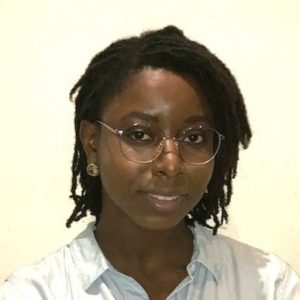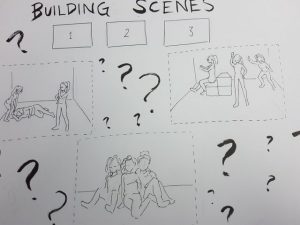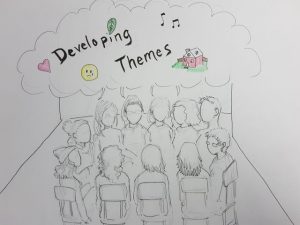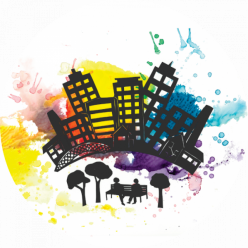
The youth demonstrated that while they had not walked in the shoes of their peers, they had a window into some of the difficulties that face LGBTQ youth.
Sarah Adjekum
Sarah Adjekum is a social worker, PhD student in the Health and Society program at McMaster University and a research assistant with Transforming Stories, Driving Change. She is a longtime Hamilton resident who has been involved with community organizing on various issues including issues of racial discrimination. Her passions include social inequality, spatial justice, poetry and sketching. As we enter the final stages of our current Transforming Stories creation series working with Good Shepherd Youth Services Sarah reflects on some of the ways the youth are working to address issues of gender diversity, sexual orientation and race-based discrimination
Understanding Gender

“Building Scenes” sketch by Sarah Adjekum.
An interesting dilemma that arose early in the process was that of gender. How could we depict the range of experiences that intersect with housing with the existing cast that remained? As well, how could we appropriately include stories of gender diversity, and sexual orientation?
While our participants are not male identified, their interactions with men and boys in their lives provided some insights into the kinds of issues men and boys might have encountered as voices absent in this workshop process. How does one perform healthy masculinity when other aspects of their lives are precarious and unstable and how does this affect those around them? What kinds of peer support and leadership are available for boys as they navigate adolescence and adulthood?
The conversations that emerged were ones that touched on the difficulties of being queer or trans while homeless. They captured the difficulties of seeking shelter and couch surfing while being exposed to prejudice and at times violence. The youth demonstrated that while they had not walked in the shoes of their peers, they had a window into some of the difficulties that face LGBTQ youth.
Tackling the Nuances of Race

Over the course of the workshops race based discrimination has been one of the themes that have been touched upon. All of the youth have shared stories that demonstrate their own encounters with power structures in their every day lives. While they hail from different backgrounds, our conversations reveal an intimate understanding of the impact of racism in their lives.
Some of these stories are personal accounts that reveal the struggles of finding and securing housing as a racialized youth. Others have shared stories of the implications of being racialized on their personal lives. Being bullied, or teased because of the colour of their skin. Some of their stories are not personal accounts, but rather reflect proximity to race based discrimination in housing and other aspects of the lives of people they know and interact with in the community.
While an important reality, that is often difficult to broach; what was telling about these conversations was the frankness with which they occurred. Perhaps a lesson to be learned here is that to address these problems we need to talk about them first – and that we all have something to say.


Thank you for such a thoughtful post, Sarah. It really demonstrates how this process can bring up so much stuff! I love the sketches as well!